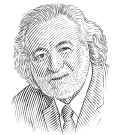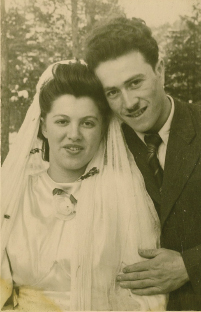A famous Talmudic question asks: “What is truer than the truth?” The answer: “The story.” This is the story of my personal journey in search of meaning and the development of an approach to care for patients with advanced cancer, which I came to call “meaning-centered psychotherapy.”
In terms of the scientific rationale, structure, and practice of meaning-centered psychotherapy, see page 112 in this issue for a report on my paper published recently in the Journal of Clinical Oncology.1 Here, I discuss the evolution of meaning-centered psychotherapy, beginning with the story of a personal journey in search of meaning.
Legacy of the Holocaust
I am a child of Holocaust survivors. This is an identity that has defined me, because of the profound legacy and source of meaning it has imparted to me. It is what life has given me, and I have made the choice to respond to this legacy of death, loss, and perceived meaninglessness by using it as a source for compassion to ease those in despair with advanced cancer and help them reclaim a life of meaning in the face of loss, suffering, and limitations.
My parents, Rose and Moses Breitbart, were Holocaust survivors. After their lives were disrupted at ages 14 and 17, respectively, my parents survived by fighting as partisans in the forests of Poland and finally wound up in a displaced persons camp outside of Munich called Fahrenwald. In 1949, they married there and spent their wedding night in a borrowed “wedding bed.” Arriving on the Lower East Side of Manhattan, they had nothing of their own but the will to live and the courage to love; they created a life of meaning in a seemingly meaningless world.
I was the firstborn of two sons. The legacy of the Holocaust remained alive and lived with us in our two-bedroom apartment on Grand Street. The Holocaust did not have its own room; it lived in every room, on the walls, in the drawers, in pictures, in documents, and in prayer books and tefillin saved from the flames of war.
Meaning and Purpose
“Why am I here?” My mother asked this question of herself every morning of my childhood and urged me to ask the same question of myself every day. “Why am I here? And so many others are not!” This, in fact, is the more complete question my mother asked. Both of my parents lost so much—their own parents, siblings, cousins, aunts, uncles, schoolmates, and friends.
I grew up with a legacy of loss and suffering but in a home filled with love, compassion, and the need to find meaning, purpose, and significance. I accepted the responsibility and the burden of living not only my life, but also the lives of those who did not survive.
I am trained and certified in both internal medicine and general psychiatry. I began my training in 1984 as a clinical fellow in psycho-oncology at Memorial Sloan Kettering Cancer Center in New York. My mentor, Dr. Jimmie Holland, had a mission to create and develop the field of psycho-oncology in order to provide comprehensive psychosocial care to patients with cancer globally. I made Dr. Holland’s mission my own mission as well and have worked toward this purpose for almost 30 years, as a clinician, researcher, educator, administrator, writer, lecturer, and advocate.
Over the years, I have been searching to find a way to ameliorate the despair of patients with advanced cancer who saw no meaning, value, or purpose in living in the face of the limitations of approaching death. In my search, I found that the belief in the possibility of experiencing or creating meaning, even in the last months or days of life, sustained hope and diminished despair and suffering.
Will, Meaning, and Care
In the process of searching for a means to integrate the concepts of will, meaning, and care into an approach to ameliorating the despair experienced by patients facing death, I had a transformative experience when I came across Viktor Frankl’s seminal work, Man’s Search for Meaning.2 This experience led me to appreciate the importance of caring for myself and my family while still “being in the world.”
Dr. Frankl’s book reminds us that finding meaning in our existence is a defining characteristic of human beings. One cannot give meaning to another human being, but rather, each of us must go through the process of searching for the meaning in our
own lives.
The story of meaning-centered psychotherapy for cancer patients, like many stories, involves multiple characters as well as twists and turns in the narrative; and like all stories, it has its origins in an important legacy. The inspiration of the work of Viktor Frankl and his elucidation of the importance of meaning in human behavior and existence are that legacy.
The essence of meaning-centered psychotherapy is the conviction that there is always the possibility for meaning, the experience of meaning, and the creation or search for meaning, even in the setting of advanced cancer and despite the limitations of time in the face of death. ■
Disclosure: Dr. Breitbart reported no potential conflicts of interest.
References
1. Breitbart W, Rosenfeld B, Pessin H, et al: Meaning-centered group psychotherapy: An effective intervention for reducing despair in patients with advanced cancer. J Clin Oncol 33:749-754, 2015.
2. Frankl VF: Man’s Search for Meaning, 4th ed. New York, Simon & Schuster, 1959.
Dr. Breitbart is the Jimmie C. Holland Chair in Psychiatric Oncology and Chairman, Department of Psychiatry and Behavioral Sciences, Memorial Sloan Kettering Cancer Center, New York.



